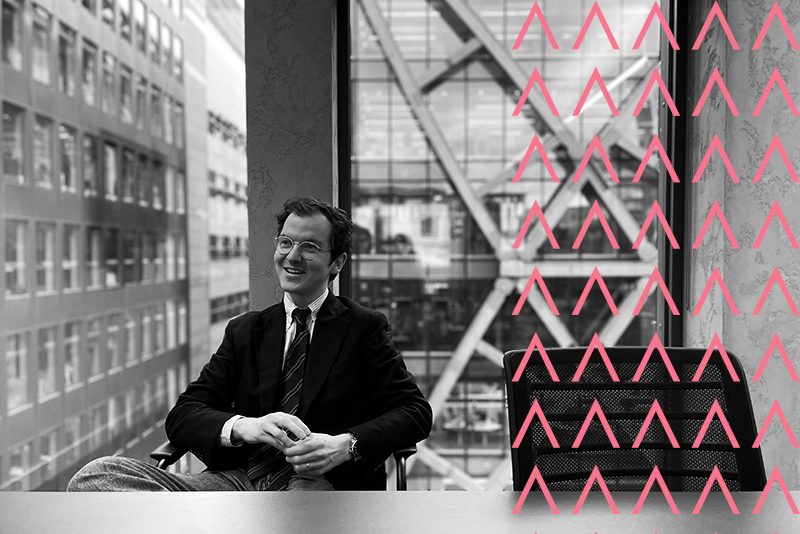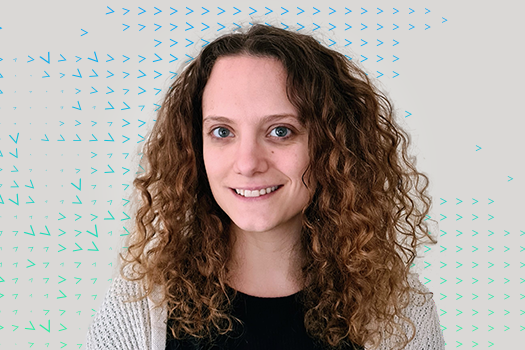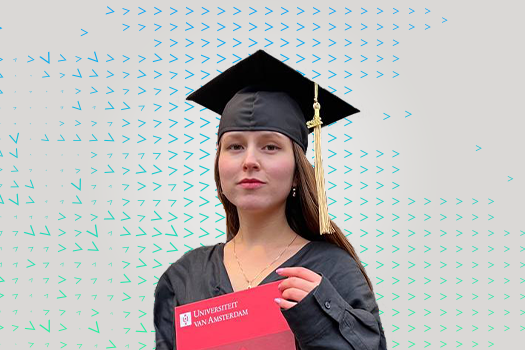Celebrating International Women in Engineering Day with a Spotlight: Jihong Lee, from Intern to Engineer
Jihong joined Quantile’s 2022 internship programme and after making a brilliant contribution to our engineering team, subsequently became a full-time employee in New York. This International Women in Engineering Day, we sat down to learn more about Jihong’s experience and how she’s finding her career in Engineering at Quantile.
Can you talk us through your academic background?
My current position as a Quantitative Developer is my first job out of college: I graduated from Williams College with a Bachelor’s degree in June 2022, four months before I began my internship at Quantile. At college, I majored in Computer Science, Statistics, and Economics as my interests always lay in the intersect between these three disciplines and completed an honours thesis in Statistics, with a focus on statistical modelling, a mix of disciplines very closely aligned with my career here on the Engineering team.
What drew you to an internship at Quantile?
I initially heard of Quantile through a recruiter who recommended the internship application since the Quantitative Developer role would require skills relevant to each of my majors. I was comfortable coding in Python given my Computer Science major and my Economics background would help apply this technical skill to Quantile’s work in the finance realm. Finally, having always been interested in statistical modelling, I was excited that the job entailed modelling work.
Beyond the initial impression, the interview process made it clear that I would enjoy working at Quantile. The interviews went beyond my educational background and interests, requiring deep critical thinking and problem solving. I knew then that this role would be constructively challenging and would push me to grow both as a developer and as a critical thinker.
What did a typical day in your internship look like?
During my internship, most of my time was spent on Python development, working on projects that ranged from prototyping a new model and testing new functionalities with edge cases to simplifying constraints for the current model. I enjoyed the diversity of projects over the two months, getting to see and work with several different parts of the codebase.
I regularly checked in with my manager to give progress updates and receive feedback to either solve an issue or figure out the details for the next step. A smaller chunk of my time was spent in meetings with the rest of the compression team in the London and Amsterdam offices. During the latter half of my internship, I was also involved in compression run support, learning to monitor live runs where we would be expected to help solve problems in real-time.
Throughout my internship, I felt entrusted with responsibility and was given the freedom to explore solutions, run into problems, and figure out the appropriate fixes on my own, whilst given abundant support whenever I needed it. When starting on a project, I would be given an initial rundown of the expected outcome and I would then independently step through the codebase to figure out how to craft an apt solution. Once I ran into a problem or a point of confusion, I would ask for help. I think this system was effective in helping me grow into a better programmer and get comfortable with the codebase quickly.
How has this changed since moving to a permanent role?
Not much has changed in terms of the day-to-day and this goes to show that, as an Engineering intern at Quantile, you get an accurate idea of what working at Quantile is like. If there has been a change, it would be that the projects that I have been working on since I moved to a permanent role carry more weight and repercussions than those as an intern. My changes to the codebase touch on more processes now, which means that I need to take responsibility for any unforeseen errors and nimbly address them.
What key skills would you say you’ve learnt at Quantile?
Of course, since I work with Python on a daily basis, I’ve grown a lot as a Python developer.
Having studied Computer Science for the last four years in an academic setting, most of the code I’ve written has been for my own independent projects. At Quantile, I have learnt to work on a collaborative codebase, read and understand code written by someone else, and add my changes. The feedback step that takes place prior to any changes going live has allowed me to learn directly from other engineers on the team and how they code to make my code more efficient.
Is there any advice you would pass on to future applicants considering an Engineering role at Quantile?
Even as an intern, the organisational structure at Quantile felt very inclusive and flat. You can totally make very meaningful contributions to the code. There are multiple opportunities to contribute your ideas and choose which projects you’d like to work on.
After two months as an intern, I came away from the experience with a strong understanding of the optimisation process at the heart of Quantile’s compression service. If you are someone who loves being challenged to think critically about creative solutions to coding problems, this is the place for you.
Applications for our internship programme open in September. We look forward to welcoming our next cohort of interns to Quantile so we can continue to nurture new talent through the programme.
View Roles + Apply Today
Related Content

Employee Spotlight: Engineering at Quantile with Liam Williams, Engineer

Employee Spotlight: Valerie Francisco, Systems Engineer
